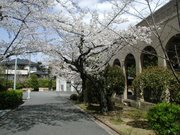I made a new friend at a Temple University Seminar featuring the charming, convincing and prolific vocabulary researcher Batia Laufer on 2/17/07.
His question:
[Batia Laufer said] ... a language teacher must be proficient in the L1 in order to be an effective teacher. I was wondering what are your thoughts about that statement in regards to the seminar and your personal experience.
My thoughts:
I just wrote a 4500 word essay on the Use of the mother tongue (L1): Successfully negotiating the Slippery Slope in the classroom. I am sure that the mother tongue is just one more effective TOOL or RESOURCE, among many, that an effective teacher uses when necessary. Everyone, including Batia Laufer, uses the phrase, "a JUDICIOUS (sensible and careful) amount" to describe how much L1 to use in the classroom. Nation goes further by saying that the teacher should use no more than 10% of the L1. I think that is a good target depending on the class and level of students. I argued that low level students can benefit greatly from L1 support. I also believe that somewhere around the intermediate level, students begin to wean themselves of the L1 and want more English-only instruction.
So, if you plan to stay in Japan for a while, get your butt into a Japanese class as soon as you can. The deeper you go into learning Japanese, the better you will understand (in an eavesdropping kind of way) so many things about your students and classroom dynamics. This will lead you to being able to connect much better with your students and your school as well. Moreover, the benefits of studying a language (i.e. being a student yourself) are countless. Finally, knowing Japanese for your personal life will open more doors than you could imagine.
My own opinions, supplemented by reading about 32 published articles on the topic, go way beyond this short answer and I welcome further discussion on this topic.
Keep in touch. If you ever want to chat about the Birmingham program, try calling me through Skype (http://www.skype.com/)
Subscribe to:
Post Comments (Atom)



2 comments:
I totally agree that native speaking teachers should study the language!!! It's crucial to be able to answer questions students have as well as be more involved in their lives! BUT, I kinda disagree that younger learners need more L1. I try not to use ANY L1 in my elementary classes...but I also try to absolutely LIMIT the amount of L1 I use. I think being an 'active' role model in the class is a great language lesson for the students--if you don't know how to say it, start acting it out! There is a place for L1 in the classroom, but I've seen native English teachers get carried away with it. They like to show off their Japanese and impress their students! Careful boys and girls...who is this class for anyway?
I recently discovered Paul Nation and so am excited to discover your blog, thanks to sista k (and I used to be a JET before the flood). I recently came across this 1997 article on the usefulness of knowing some Japanese, or at least understanding something of its fundamental structure.
Post a Comment